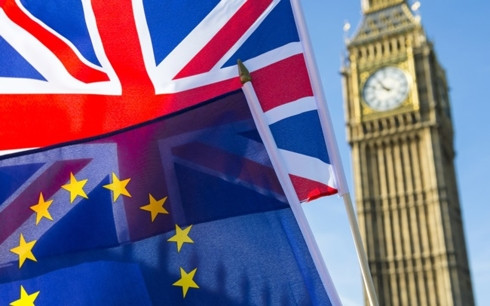EU agrees to extend Brexit until end of October
Leaders of 27 EU member states have decided to continue to postpone the deadline for Britain to leave the European Union (EU) until October 31.
At an extraordinary summit held on April 10, ending in the early morning of April 11 (European time), leaders of 27 EU member states decided to continue postponing the deadline for Britain to leave the European Union (EU) until October 31, 2019.
|
| Photo: Europa EU. |
Following the UK's request to postpone Brexit until the end of June 2019, EU leaders had a tense meeting that lasted from the evening of April 10 (European time) and only reached a consensus in the early morning of April 11.
Accordingly, the EU agreed that the new Brexit deadline will be October 31, 2019, right before the new European Commission officially comes into operation. This is a flexible deadline, from now until this point, the UK can leave the EU at any time if the British House of Commons ratifies the withdrawal agreement reached with the EU at the end of 2018.
Speaking after the end of the summit in Brussels (Belgium), President of the European Council Donald Tusk emphasized: “This means that the UK will have another 6 months. During this time, everything will take place entirely in the UK. The UK can still ratify the withdrawal agreement before this deadline ends. The UK can also consider changing the Political Declaration between the UK and the EU, but cannot amend the withdrawal agreement. From now until the end of this deadline, the UK still has the ability to cancel Article 50 of the Lisbon Treaty and completely cancel the withdrawal from the EU. The UK can also continue sincere cooperation as a member with full rights and obligations, a reliable friend and ally in the future.”
Before reaching this agreement, there were relatively large disagreements among EU leaders. While French President Emmanuel Macron did not want to continue to extend Brexit for a long period as the UK proposed, German Chancellor Angela Merkel supported extending the Brexit deadline until the end of 2019, even into 2020. Before the EU leaders made this decision, British Prime Minister Theresa May had bilateral meetings with the French President and German Chancellor to convince the two leading EU countries to accept the UK's plan. Meanwhile, the two German and French leaders themselves had a short meeting to resolve related disagreements.
Speaking at a press conference immediately after the EU's decision, the British Prime Minister emphasized that Britain could still leave the EU on May 22, if British MPs gave the green light to the withdrawal agreement that they had rejected three times before.
The EU's decision to extend the Brexit deadline by 6 months came exactly 1 day before the end of the first extension, on April 12. The extension of more than 6 months will also help both the EU and the UK temporarily avoid the worst-case scenario of the UK leaving the EU without reaching any agreement./.


